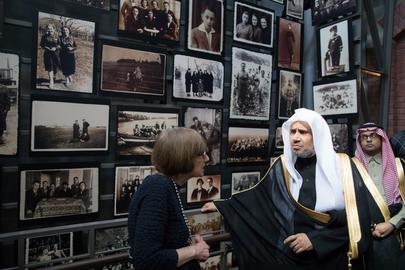It was a late spring day.
Far away in America storm clouds were gathering over the future of the nuclear deal, but here in Tehran the weather was sunny and breezy with no air pollution.
I was strolling down that section of Enghelab Avenue opposite Tehran University where booksellers set up on the sidewalk.
Three young women, all modestly dressed, came out of the main university gates and were immediately stopped by two Morality Patrol policewomen.
I edged closer to eavesdrop.
The policewomen, in full-length black chadors, started their interrogation.
“Why on earth you have so much make-up on your faces?” asked the first.
One of the young woman, whose grey coverall, or manteau, reached to her knees, replied, “But this is nothing, khanom” (the polite form of address in Persian, which means respectable lady).
“Look at our manteaus, our scarves. They are modest. As for the make-up – it’s nothing but a little lipstick and blusher.”
The second policewoman gestured to the police vehicle.
“Please go over there to the van,” she said in a tone that was surprisingly polite.
Then the young women were driven away.
Right away, bystanders started to comment.
“They call that “inappropriate hijab!” said a middle-aged woman with her daughters. “It’s just a cat and mouse game for the Morality Police and it goes on every day, not only in Tehran but in all our big cities.”
“We should have intervened to get them released,” a student spoke up. “It’s all our fault. We spend so much energy protesting against this theocratic regime – then rush out and vote as soon as there’s an election — and endorse them with our ballots. It’s ridiculous.”
A middle-aged man said, “But surely if the majority feel that way this theocracy is bound to crumble and people will get what they want — satellite dishes, Telegram messaging, a sex industry and so on. I may not survive those kinds of freedoms, but the will and determination of young women like that are bound to prevail."
“It seems inevitable,” I added, reflecting that popular will is, in the end, unstoppable.
In his book The Monk of Mokha, Dave Eggers illustrates the point nicely as he explores the history of public coffee-drinking.
“The first coffeehouses, called qahveh kaneh, appeared throughout Arabia and were known for lively discussions, for music, and in some cases, activities frowned upon in various quarters — prostitution, gambling and criticism of local government.”
“Coffeehouses were often closed by rulers who saw in them the beginnings of uprisings. In 1511, Khair-Bey , then the governor of Mecca, got wind that verses lampooning him had originated at coffeehouses, so he decreed that all coffeehouses be closed.
“But the ban did not last long. The demand was too great.”
visit the accountability section
In this section of Iran Wire, you can contact the officials and launch your campaign for various problems




















comments